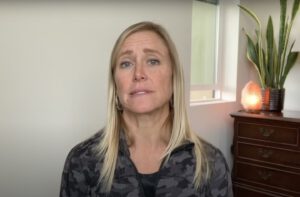New poll highlights bi-partisan concerns about the quality of education
New poll results released by Free to Learn, an education advocacy group, revealed that over 80% of Americans are concerned about the quality of education in the United States. This sentiment aligns…

New poll results released by Free to Learn, an education advocacy group, revealed that over 80% of Americans are concerned about the quality of education in the United States. This sentiment aligns with recent National Assessment of Educational Progress (NAEP) findings highlighting similar parental dissatisfaction nationwide. After over a year of witnessing immense overreach by school boards, teachers unions, and government entities, it appears that the resurgence of parent interest in education has real staying power.
The NAEP report showed noticeable declines in math and reading proficiency nationwide. In fact, math and reading scores declined for the first time in the almost 50-year history of the test. The report also claimed that underperforming students are having a harder time than they did even a decade ago. While most American parents would argue that standards are not high enough, states like Oregon have suspended their graduation requirements in math and reading.
The Free to Learn poll, after presenting the information from the NAEP report, posed the question: “Knowing this, are you more or less concerned with the academic education children are receiving?” Respondents came back with a resounding 81% “More Concerned.”
The poll also tackled the effects of virtual learning on students, especially in regards to mental health. With lockdowns happening nationwide, virtual learning became a reality for nearly every public school student in America. Of parents polled, 60% claimed that virtual learning had a negative effect on their children’s mental health. In recent months, test scores and other studies confirm the significant learning loss for students subjected to virtual learning.
Over half of the parents polled became more active in their children’s learning after observing what they were taught. The subject of parental involvement has been a hotbed issue in recent months, which played out recently in the Virginia Governor’s race. Glenn Youngkin, who won the race, supported parental involvement in education while his opponent, Terry McAuliffe, stated, “I don’t think parents should be telling schools what they should teach.” But according to the poll, “72% of Americans overwhelmingly agree that parents should be able to request the curriculum being taught to their children.”
Curriculum was also a major concern among parents polled, with 67% expressing the importance of being able to opt out of curriculum deemed harmful or inappropriate for their child. Two-thirds of parents also opposed the idea of an administrator or teacher overriding those opt-out requests. A majority of parents noticed schools becoming more political, and Critical Race Theory did not fare well in the poll, especially after respondents were read a quote from a prominent CRT advocate.
Parents also overwhelmingly (74%) felt that “it’s inappropriate to survey students about their sexual experiences, sexual orientation, gender identity, etc.” Stories abound regarding this type of prying in schools, such as the survey done in Fairfax County, VA, which could be taken by children as young as 10 years old. That survey featured questions such as whether students felt they were transgender or if they had performed oral sex.
This data indicates that parents’ frustrations with agenda-driven, low-quality education has reached a tipping point. The poll was fairly evenly split between Republicans, independents, and Democrats, who are all looking for a quality education without the extra baggage they have been experiencing and reading about in the headlines.



